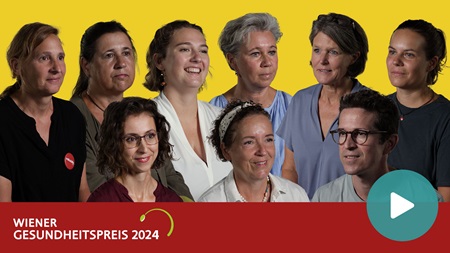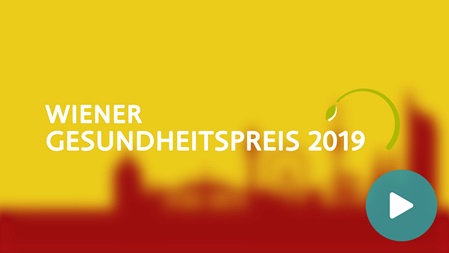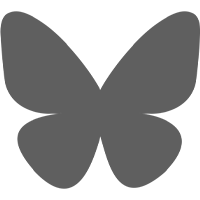In 2022, several outstanding projects in the category “Healthy in Institutions and Organizations" were honored as part of the Wiener Gesundheitspreis. These initiatives impressively demonstrate how health can be promoted and sustainably embedded in various institutions. The award winners share their experiences in thesew video interviews about their recognized projects:
ParDi: Patient*innenbeteiligung im Diabeteszentrum Wienerberg: The project “ParDi” aims to establish sustainable patient involvement at the Diabeteszentrum Wienerberg. Through active participation, patients are more closely involved in treatment processes in order to improve the quality of care and enhance health literacy. The project is a collaboration between the City of Vienna – Strategic Health Services (MA 24), the Österreichische Gesundheitskasse (ÖGK), the Gesundheit Österreich GmbH (GÖG), and FEM Süd.
Obdach Josi macht gesund: The day center Obdach Josi offers a wide range of health services for people experiencing homelessness through the project “Obdach Josi macht gesund.” In cooperation with partner organizations such as Psychosoziale Dienste Wien, neunerhaus, and Caritas, both medical and psychosocial support services are provided. Innovative subprojects like “Josi Nurse” and “Suchthilfe vor Ort” complement the offer and contribute to improving the health conditions of its users.
Es reicht! Kampagne gegen sexuelle Belästigung am Arbeitsplatz: The Kuratorium Wiener Pensionisten-Wohnhäuser (KWP) launched the campaign “Es reicht!” to address and prevent sexual harassment in the workplace. Through education, training, and clear guidelines, a respectful and safe working environment is created for all employees.
Drei Säulen der schulischen Gesundheitsförderung: The Mittelschule Selzergasse in Vienna developed a holistic concept for school health promotion based on three pillars: physical activity, nutrition, and psychosocial well-being. Through a wide range of measures, students, teachers, and parents are equally involved in fostering a healthy school environment.
These projects clearly show how targeted actions and cooperation can promote health within different institutions and organizations. They make a valuable contribution to improving the quality of life and well-being of Vienna’s population.











